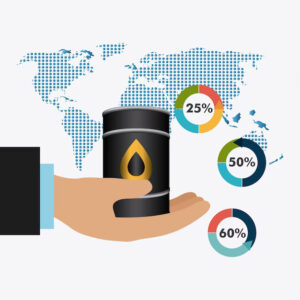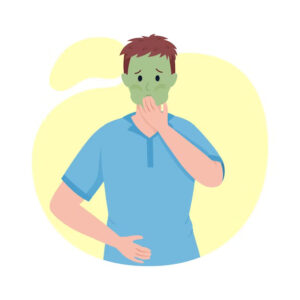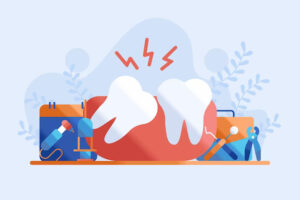To help your teeth and gums, oil pulling entails swishing edible oil around in your mouth before spitting it out. The procedure comes from the ancient Indian system of medicine known as Ayurveda, and it usually calls for the use of coconut oil, sesame oil, or sunflower oil.
how to oil pull proponents assert that the technique can “pull” dangerous bacteria out of your mouth for a whiter smile. There is, however, little proof that oil pulling might enhance dental health. Are you still willing to try oil pulling? How oil pulling functions and how it might improve your health are described below.
What Exactly Does Oil Pulling Do?
According to studies, oil pulling can aid in lowering the salivary bacteria that produce plaque, gingivitis, and bad breath.2 It is questionable, nonetheless, how precisely that contributes to bettering the condition of your gums and teeth. Numerous research on oil pulling are poorly planned and use small sample sizes over brief times. The claims that oil pulling can whiten teeth, heal asthma, soothe allergies, or prevent heart disease are similarly unsupported by any data.

It is necessary to conduct more high-quality investigations to ascertain how beneficial oil pulling is. Oil pulling may appear a little woo-woo in comparison to a great brushing and flossing routine, but it actually has a few potential benefits for your oral health.
It could get rid of dangerous bacteria.
The main benefit of oil pulling is that it purges or gets rid of oral germs. Although there will always be some bacteria in your mouth, oil pulling may aid in reducing dangerous bacteria. In your mouth, hundreds of different kinds of bacteria, both good and bad, naturally flourish.4 Tooth decay, gum disease, and bad breath are frequently experienced when harmful bacteria increase as a result of inadequate brushing or a high sugar diet.
In a 2019 study including 75 kids, those who oil-pulled with sesame oil or rinsed with an antibacterial mouthwash had a significant decline in the number of dangerous germs in their saliva.8 Another 2016 study with 60 participants compared persons who oil-pulled with coconut oil for 10 minutes, rinsed with distilled water for one minute, and rinsed with chlorhexidine mouthwash for one minute. The mouthwash and coconut oil groups had less bacteria in their saliva after two weeks, the researchers discovered.
It might lessen bad breath.
The germs that cover the tongue, illnesses, and poor oral hygiene are frequently the causes of bad breath. Oil pulling may assist you in preventing and reducing bad breath since bacteria that are present in your mouth can produce halitosis, often known as foul breath.

People with foul breath frequently try to eliminate the stench by brushing more effectively or using an antiseptic mouthwash like chlorhexidine. Oil pulling with sesame or rice bran oil is just as efficient at decreasing foul breath as chlorhexidine mouthwash, according to a 15-day trial of 30 pregnant women. Furthermore, a 2011 research of 20 children found that using sesame oil for oil pulling or chlorhexidine for mouthwash both reduced the microorganisms that cause foul breath.
It might stop tooth decay.
Coconut oil oil pulling has been found in research to help reduce the bad oral germs that frequently cause tooth decay.9 Therefore, oil pulling may reduce your risk of getting cavities since bacteria buildup causes tooth decay.

Additionally, oil-pulling may help stop the plaque accumulation that triggers tooth decay. After 30 days, a small 2020 study indicated that using coconut oil for oil pulling helped to minimize plaque formation. Similar plaque-reducing effects for oil pulling with coconut and sesame oil were discovered in a 4-day research.
It might lessen gum swelling.
Plaque-forming bacteria can also cause gingivitis, a gum condition that causes bleeding and irritation of the gums. By reducing the microorganisms that might cause gum disease, oil pulling may help lessen the inflammation related to gum disease.
Particularly coconut oil offers anti-inflammatory qualities that could ease sore gums. One week of oil pulling with coconut oil helped reduce plaque and improve gum health, according to a study of 60 persons with gingivitis. In a previous study, 20 male youngsters with gingivitis who used sesame oil or standard mouthwash reported fewer symptoms. Additionally, oil-pulling assisted in reducing plaque and dangerous bacteria in their mouths.
Potential Negative Effects
Despite the fact that the oils used for oil pulling are safe to consume, try to avoid swallowing them. The ingestion of these oils may result in diarrhea and GI distress.

Considering that the oil you’re swishing contains toxins and bacteria from your mouth, traditional Ayurvedic medicine advises against swallowing it. Instead, spit the oil into the garbage and then brush your teeth.
Oil pulling dangers
Oil pulling shouldn’t take the place of regular dental appointments and tooth brushing. Oil pulling is typically low-risk when added to your dental hygiene regimen, though.
To fully understand the risks and side effects of oil pulling, more research is required. However, oil pulling is probably little danger for adults when done properly. However, studies have shown that oil pulling can have minor to potentially hazardous side effects, including:
- Stomachache brought on by inadvertently ingesting oil
- Oil aspiration (inhaling oil unintentionally into the lungs)
- Lipoid pneumonia brought induced by long-term lung oil infiltration
If you are allergic to sesame or coconut, oil pulling might also be bad for you. Sesame has just been included as one of the nine main food allergens by the US Food and Drug Administration. Although it is unlikely, a coconut allergy is a possibility. Call your doctor if you oil pull and get swelling, hives, or itching as signs of an allergic reaction. Call 911 right away if you’re having difficulties breathing or your throat starts to enlarge. These are symptoms of anaphylaxis, a severe allergic reaction that requires immediate medical intervention. You shouldn’t use coconut or sesame oils for oil pulling if you have a known allergy to either of those substances.
How Frequently Should I Oil Pull?
Due to the absence of conclusive data, the American Dental Association does not advocate oil pulling either.
As long as you don’t have any allergies to the oil you’re using, the technique is relatively low-risk if you decide you’d like to give it a try.
Daily oil pulling is possible, ideally first thing in the morning before brushing your teeth. Oil pulling experts also advise that you perform the procedure on an empty stomach and that you strive to swirl the oil around for 20 minutes. You can attempt 5 to 10 minutes if 20 minutes is too unpleasant.
What is an oil pull?
The oils used in oil pulling that have been the subject of the most research and seem to work the best are sesame and coconut. These two oils both contain antibacterial and anti-inflammatory characteristics that could aid in reducing and preventing the growth of dangerous germs in your mouth. However, due to its milder flavor, coconut oil is frequently regarded as the ideal oil for oil pulling.
Before brushing your teeth in the morning, oil pulling is simple to perform. To begin oil pulling, take the following actions:
- A tablespoon of oil should be placed in your mouth.
- Swish the oil around in your mouth for 10 to 20 minutes, paying particular attention to your teeth.
- Expel the oil (it should appear thin and milky).
A Brief Overview
In order to maintain the health of your teeth and gums, you can oil pull. However, there hasn’t been much research on oil pulling, and there aren’t enough high-quality studies to demonstrate that it works to enhance oral health.
FAQs
Which oil works best for oil pulling?
Oil pulling is typically advised, however you can use any high-quality cooking oil instead. Virgin coconut oil possesses antibacterial, antiviral, and antifungal effects. Because of this, coconut oil has a healing advantage over other kinds of fat.
Do you brush your teeth after oil extracting or before?
You should typically rinse your teeth after oil pulling to help get rid of any leftover poisons or oil. To safeguard your teeth’s enamel, several dentists advise waiting at least 30 minutes before brushing.



















